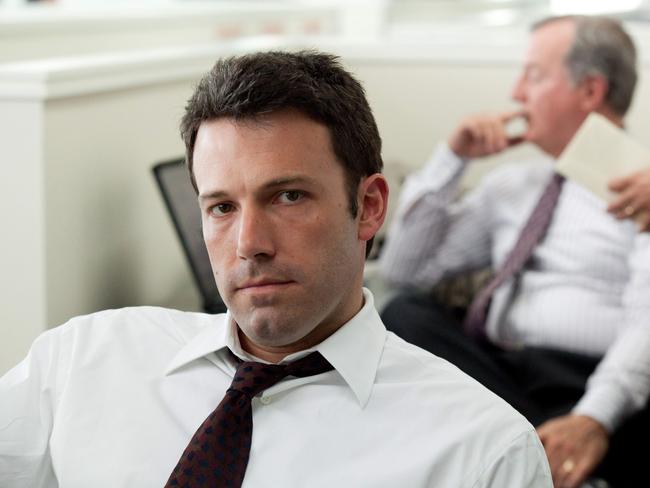What happens when you’re made redundant
THE thought of being called into a room and being told you’re redundant is something many of us fear. So what happens next when it actually happens to you?
Careers
Don't miss out on the headlines from Careers. Followed categories will be added to My News.
WHEN marketer Jessica Hall* found herself staring at a redundancy agreement in April, she wasn’t sure what to think.
Even though her company, a prominent financial services firm, had warned there were changes coming, she thought it would be like the other multiple restructures the company had already gone through in recent years.
She expected she would be told that her job no longer exists but that she could apply for a number of other roles. Instead, she was told there would be no comparable role and that she would finish up at the end of June. In her department, the same thing happened to her boss and another colleague. In the Melbourne office, the marketing department lost more than a dozen people.
“It was a bit of a weird situation,” she told news.com.au. ““It wasn’t very clear for a lot of people outside of our team what had transpired.
“It was being sold externally as if it was good news — that the marketing team had gone through a restructure and that people had received new opportunities. But for those of us who got our notice, it was very awkward. And for the survivors, they felt guilty.
“It was an interesting time, very emotional. I likened it to the seven stages of grief — you go through a bit of a phase and it takes a bit of time to go through the next phase.
“When it first happened, I was quite emotional about it but then by the next day, it had passed a little and I was able to think about it more rationally. I don’t have dependants or a mortgage to consider so it would be quite different for other people who had those immediate concerns.”

As part of her redundancy process, her company had organised a four-month package with an outplacement and careers firm. As part of that, she received one-on-one counselling sessions every week and access to workshops and training.
“The outplacement program gave me the room to think about exploring new career opportunities. It was time out every week to think about my career away from the emotion of the office and allowed me to think about it structurally.
“I tried to think of it positively. It was a window of opportunity to take a career sabbatical.”
Ms Hall had worked in the marketing and advertising industries since graduating from university almost eight years ago. She had started a Master of Business in Management some years ago and has been chewing it off part time. After being made redundant, and talking it through with her careers counsellor, she decided it was a good opportunity to finish her degree by the end of the year.
At the height of the GFC, the previously little-known side of the employment industry, outplacement, was thrust into the limelight. Outplacement and the redundancy process was most prominently portrayed in the Jason Reitman film Up in the Air, which saw George Clooney portray a man who flew all over America as a hired hand to make people redundant. Another movie starring Ben Affleck and Tommy Lee Jones, The Company Men, also shed led on what workers go through after redundancy.

But what happened in those movies doesn’t always reflect the reality, Audrey Page & Associates managing director of business partnerships Graeme Page told news.com.au.
Audrey Page & Associates is an outplacement, or ‘career transition’, service used by some of the biggest companies in Australia. Mr Page said that unlike in Up in the Air, his firm would never be the one to “do the deed”. Mr Page said they would come in at the next step. Sometimes, affected employees are given their details or sometimes representatives from Audrey Page & Associates would be in the next room waiting.
“We’re there at the start of the process. We’re often the first person they talk to after going through the process,” he said. “We deal with that emotional shock and you need to support them through the first few days. We get some people who are angry, teary or emotional.
“It’s an emotional journey. You lose a sense of who you are as a person when you go through that. When we meet people at parties, we’re often asked what we do and our jobs can become a proxy for who we are.
“People forget what they’re good at, their achievements and the impact they’ve had. It’s our job to help them feel good about who they are and go through what the possibilities are.”
Mr Page said that most people go through careers without thinking about where they’re headed, that they make a decision at school or university and then just keep going without much thought. He said a redundancy will often give people an opportunity to assess what they’re really good at and what they actually want to do, which could be something they weren’t brave enough to consider in the past.
Outplacement companies will also give people coaching in how to find their next job, helping them with their resumes, interview skills and networking tips. They could also provide more left-field skills such as meditation. Mr Page said one of the most important things about finding the next gig is networking. “Often people think it’s recruiters who are the most useful people but it’s mostly about people you know,” he said.

Mr Page said there are psychological considerations to take into account when people are going through such a momentous event. He said it’s important to have a strong mental health policy but that the majority of people cope with it well under the circumstances. He said: “All of our coaches are trained to recognise the danger signs. If we think someone needs more support, then we will walk them to a psychologist across the road. Every now and then, the redundancy is a trigger for something deeper.”
He said that out of the hundreds of people they help every month, there may be one or two people that need that extra level of care.
Mr Page said what can be beneficial to a lot of people who have lost their jobs is the support network at training sessions and seminars. He said people meet other people who are in similar situations and feel less alone about what they’re going through.
But even if someone has had their world shook-up with redundancy, it doesn’t have to be an all-encompassing negative event.
For Ms Hall, she’s now back at university full time and using her redundancy payout to fund her living expenses through to the end of the year. She’s also taking advantage of the break to think about different career paths and is taking subjects at uni with a broader view of what’s next. Her colleagues who also went through redundancy took the opportunity to start their own businesses or find positions with better job security.
“When you’re looking for a new role, a lot of time the time people will be unsuccessful at first,” Mr Page said. “There may be a series of failures followed by success. We help them manage the things that don’t work and at the end of it, for many people, this becomes a life changing event.”
*Name changed on request due to confidentiality issues.
Have you ever been through a redundancy? Share your experiences in the comments below or email the writer at wenlei.ma@news.com.au
Originally published as What happens when you’re made redundant



